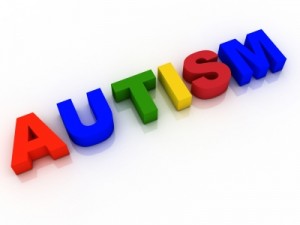 Does your child frequently get extremely irritable and/or angry? Does your child have intense emotional meltdowns regularly? Does your child get disproportionately enraged related to the severity of the situation? It is very possible that your child could be suffering from Disruptive Mood Dysregulation Disorder (DMDD). DMDD is a new diagnosis for children who have explosive outbursts on a regular basis and have poor self-regulation.
Does your child frequently get extremely irritable and/or angry? Does your child have intense emotional meltdowns regularly? Does your child get disproportionately enraged related to the severity of the situation? It is very possible that your child could be suffering from Disruptive Mood Dysregulation Disorder (DMDD). DMDD is a new diagnosis for children who have explosive outbursts on a regular basis and have poor self-regulation.
Often perceived as moody, a child with DMDD, symptoms begin to show at around age 10 or younger. Diagnosis happens when the child has at least three or more outbursts or more per week for a year. However, children 6 or younger and adults 18 and over will not be given the diagnosis. Boys are more likely to be affected by DMDD than girls.
A child with DMDD has significant trouble functioning due to their intense, volatile moods in all situations at school, home, and other settings. The outbursts exhibited by the child occur at least three or more times per week.. Daily, the child seems to be in an angry mood most of the day.
How does this affect your child’s day to day life?
DMDD can have detrimental effects on a child’s life and can impact everything from home life to school performance. Making friends and maintaining relationships is nearly impossible for the child. All of this negativity can increase the possibility of developing a mood disorder as an adult, such as depression. A child with DMDD has a poor quality of life due to all of the negative emotions and break downs.
What can I do as a parent?
As a parent, it can be difficult to know what to do with a child exhibiting DMDD symptoms. It can be exhausting and it can feel like no progress is being made. The key to dealing with DMDD is to try to interact with the child in a way that does not provoke aggression. Responding to irritable behavior is key to handling the situation appropriately. Responding with calm, restraint, and patience. Do not react in an angry fashion. Not only does this negatively impact the situation, the example being set for the child only reinforces their natural aggression. If a parent feels an episode coming, the parent should try to derail it in a calm manner. Be consistent with the child and when the child behaves well, reward them for their actions to reinforce positive behavior.
How can this be treated?
Neurofeedback is a natural method of retraining the brain to function in a calm manner. Safe for children, this method of treatment can reduce or eliminate symptoms of DMDD. As a result, the child will have more patience and a more positive mood, which impacts every facet of their life. Neurofeedback helps the brain to learn to self-regulate, so the child’s emotions will not be so disproportionate to the situation at hand. There is no use of medications with neurofeedback. Schedule a free consultation to discuss your specific case of DMDD.
Image courtesy of David Castillo Dominici at FreeDigitalPhotos.net








